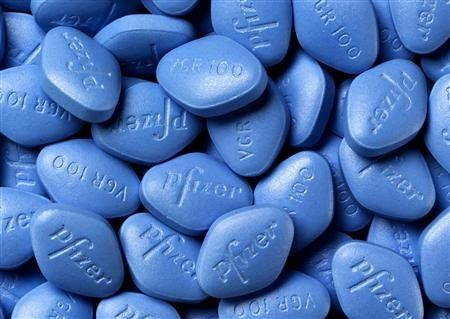Viagra Can be a Wonder Drug Against Heart Failure: Study

A new study has found that Viagra, the blue pill used to treat erectile dysfunction, can be a wonder drug against heart failure.
The new discovery on Viagra's surprising relaxing effect might actually save lives, according to researchers from the Ruhr Universitat Bochum (RUB), Germany, and the Mayo Clinic in Rochester, Minnesota.
Sildenafil, the active ingredient in Viagra, was shown to benefit patients with diastolic heart failure.
The study, published in the current issue of the journal Circulation, showed that sildenafil could enhance the elasticity of stiffened cardiac walls by activating an enzyme that causes the giant protein titin in the myocardial cells to relax.
We have developed a therapy in an animal model that, for the first time, also raises hopes for the successful treatment of patients explained lead researcher Dr. Wolfgang Linke of the RUB Institute of Physiology. Sildenafil is already being tested on heart failure patients taking part in the Relax trial in the U.S.
Sildenafil inhibits an enzyme involved in the mechanism that regulates blood flow but functions slightly different in different parts of the body. In the penis, the drug successfully suppressed the enzyme phosphodiesterase (PDE) by increasing blood flow to the organ.
Fortunately, Linke's team found that a similar mechanism worked on the same enzyme in heart cells. The result was that sildenafil caused a cardiac muscle protein called titin to become more elastic.
Of all the patients aged over 60 who are in hospital because of a weak heart, half suffer from diastolic heart failure, explained Linke.
Although we know that the decreased distensibility of the cardiac walls is the cause, the disease cannot be treated properly with today's medicines.
In the so-called Relax study of the Heart Failure Network, the efficacy of sildenafil in people is already being tested. If, for the first time, the drug is found to have a positive effect on heart failure, we would already have a molecular mechanism on hand to explain the effect added Linke.
The study clarifies how the mode of action in Viagra could be beneficial in patients with diastolic heart failure. People with the condition have abnormally inflexible ventricles, the heart's major pumping chambers that do not fill sufficiently with blood.
This causes blood to ''back up'' in the lungs, causing breathing difficulties. Diastolic heart failure affects the ''diastole'' half of the cardiac cycle when the heart's chambers have finished contracting and are re-filling with blood.
Various medical conditions can cause the ventricles to become ''stiff''. They include high blood pressure, blocked arteries, and cardiomyopathy heart disorders.
According to the study, sildenafil inhibits a specific enzyme (phosphodiesterase 5 A), which causes the increased formation of a messenger substance (cGMP). The messenger substance activates the enzyme protein kinase G, which attaches phosphate groups to certain proteins. This so-called phosphorylation causes blood vessels to relax and that was the reason why the potency pill Viagra originally came onto the market.
The Bochum and Rochester researchers found that the cardiac muscle protein titin is also phosphorylated through the same mechanism. The titin molecules are similar to rubber bands, explained the Bochum scientist. They contribute decisively to the stiffness of the cardiac walls.
The activity of the protein kinase G causes titin to relax. This makes the cardiac walls more elastic. The effect occurs within minutes of administering the drug.
© Copyright IBTimes 2024. All rights reserved.





















